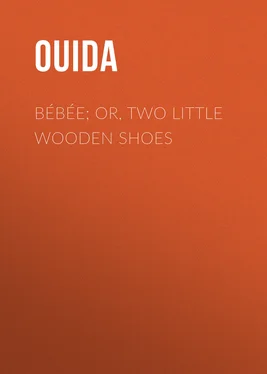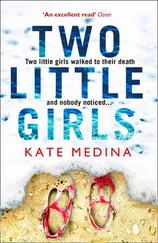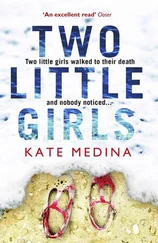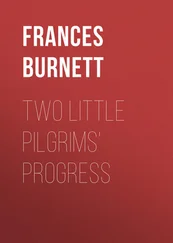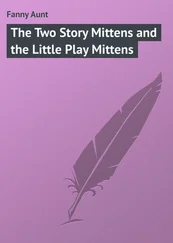Ouida - Bébée; Or, Two Little Wooden Shoes
Здесь есть возможность читать онлайн «Ouida - Bébée; Or, Two Little Wooden Shoes» — ознакомительный отрывок электронной книги совершенно бесплатно, а после прочтения отрывка купить полную версию. В некоторых случаях можно слушать аудио, скачать через торрент в формате fb2 и присутствует краткое содержание. Жанр: foreign_children, foreign_antique, foreign_prose, на английском языке. Описание произведения, (предисловие) а так же отзывы посетителей доступны на портале библиотеки ЛибКат.
- Название:Bébée; Or, Two Little Wooden Shoes
- Автор:
- Жанр:
- Год:неизвестен
- ISBN:нет данных
- Рейтинг книги:5 / 5. Голосов: 1
-
Избранное:Добавить в избранное
- Отзывы:
-
Ваша оценка:
- 100
- 1
- 2
- 3
- 4
- 5
Bébée; Or, Two Little Wooden Shoes: краткое содержание, описание и аннотация
Предлагаем к чтению аннотацию, описание, краткое содержание или предисловие (зависит от того, что написал сам автор книги «Bébée; Or, Two Little Wooden Shoes»). Если вы не нашли необходимую информацию о книге — напишите в комментариях, мы постараемся отыскать её.
Bébée; Or, Two Little Wooden Shoes — читать онлайн ознакомительный отрывок
Ниже представлен текст книги, разбитый по страницам. Система сохранения места последней прочитанной страницы, позволяет с удобством читать онлайн бесплатно книгу «Bébée; Or, Two Little Wooden Shoes», без необходимости каждый раз заново искать на чём Вы остановились. Поставьте закладку, и сможете в любой момент перейти на страницу, на которой закончили чтение.
Интервал:
Закладка:
Ouida
Bébée; Or, Two Little Wooden Shoes
CHAPTER I
Bébée sprang out of bed at daybreak. She was sixteen.
It seemed a very wonderful thing to be as much as that—sixteen—a woman quite.
A cock was crowing under her lattice. He said how old you are!—how old you are! every time that he sounded his clarion.
She opened the lattice and wished him good day, with a laugh. It was so pleasant to be woke by him, and to think that no one in all the world could ever call one a child any more.
There was a kid bleating in the shed. There was a thrush singing in the dusk of the sycamore leaves. There was a calf lowing to its mother away there beyond the fence. There were dreamy muffled bells ringing in the distance from many steeples and belfries where the city was; they all said one thing, "How good it is to be so old as that—how good, how very good!"
Bébée was very pretty.
No one in all Brabant ever denied that. To look at her it seemed as if she had so lived among the flowers that she had grown like them, and only looked a bigger blossom—that was all.
She wore two little wooden shoes and a little cotton cap, and a gray kirtle—linen in summer, serge in winter; but the little feet in the shoes were like rose leaves, and the cap was as white as a lily, and the gray kirtle was like the bark of the bough that the apple-blossom parts, and peeps out of, to blush in the sun.
The flowers had been the only godmothers that she had ever had, and fairy godmothers too.
The marigolds and the sunflowers had given her their ripe, rich gold to tint her hair; the lupins and irises had lent their azure to her eyes; the moss-rosebuds had made her pretty mouth; the arum lilies had uncurled their softness for her skin; and the lime-blossoms had given her their frank, fresh, innocent fragrance.
The winds had blown, and the rains had rained, and the sun had shone on her, indeed, and had warmed the whiteness of her limbs, but they had only given to her body and her soul a hardy, breeze-blown freshness like that of a field cowslip.
She had never been called anything but Bébée.
One summer day Antoine Mäes—a French subject, but a Belgian by adoption and habit, an old man who got his meagre living by tilling the garden plot about his hut and selling flowers in the city squares—Antoine, going into Brussels for his day's trade, had seen a gray bundle floating among the water-lilies in the bit of water near his hut and had hooked it out to land, and found a year-old child in it, left to drown, no doubt, but saved by the lilies, and laughing gleefully at fate.
Some lace-worker, blind with the pain of toil, or some peasant woman harder of heart than the oxen in her yoke, had left it there to drift away to death, not reckoning for the inward ripple of the current or the toughness of the lily leaves and stems.
Old Antoine took it to his wife, and the wife, a childless and aged soul, begged leave to keep it; and the two poor lonely, simple folks grew to care for the homeless, motherless thing, and they and the people about all called it Bébée—only Bébée.
The church got at it and added to it a saint's name; but for all its little world it remained Bébée—Bébée when it trotted no higher than the red carnation heads;—Bébée when its yellow curls touched as high as the lavender-bush;—Bébée on this proud day when the thrush's song and the cock's crow found her sixteen years old.
Old Antoine's hut stood in a little patch of garden ground with a brier hedge all round it, in that byway which lies between Laeken and Brussels, in the heart of flat, green Brabant, where there are beautiful meadows and tall, flowering hedges, and forest trees, and fern-filled ditches, and a little piece of water, deep and cool, where the swans sail all day long, and the silvery willows dip and sway with the wind.
Turn aside from the highway, and there it lies to-day, and all the place brims over with grass, and boughs, and blossoms, and flowering beans, and wild dog-roses; and there are a few cottages and cabins there near the pretty water, and farther there is an old church, sacred to St. Guido; and beyond go the green level country and the endless wheat-fields, and the old mills with their red sails against the sun; and beyond all these the pale blue, sea-like horizon of the plains of Flanders.
It was a pretty little hut, pink all over like a sea-shell, in the fashion that the Netherlanders love; and its two little square lattices were dark with creeping plants and big rose-bushes, and its roof, so low that you could touch it, was golden and green with all the lichens and stoneworts that are known on earth.
Here Bébée grew from year to year; and soon learned to be big enough and hardy enough to tie up bunches of stocks and pinks for the market, and then to carry a basket for herself, trotting by Antoine's side along the green roadway and into the white, wide streets; and in the market the buyers—most often of all when they were young mothers—would seek out the little golden head and the beautiful frank blue eyes, and buy Bébée's lilies and carnations whether they wanted them or not. So that old Mäes used to cross himself and say that, thanks to Our Lady, trade was thrice as stirring since the little one had stretched out her rosy fingers with the flowers.
All the same, however stirring trade might be in summer, when the long winters came and the Montagne de la Cour was a sharp slope of ice, and the pinnacles of St. Gudule were all frosted white with snow, and the hot-house flowers alone could fill the market, and the country gardens were bitter black wind-swept desolations where the chilly roots huddled themselves together underground like homeless children in a cellar,—then the money gained in the time of leaf and blossom was all needed to buy a black loaf and fagot of wood; and many a day in the little pink hut Bébée rolled herself up in her bed like a dormouse, to forget in sleep that she was supperless and as cold as a frozen robin.
So that when Antoine Mäes grew sick and died, more from age and weakness than any real disease, there were only a few silver crowns in the brown jug hidden in the thatch; and the hut itself, with its patch of ground, was all that he could leave to Bébée.
"Live in it, little one, and take nobody in it to worry you, and be good to the bird and the goat, and be sure to keep the flowers blowing," said the old man with his last breath; and sobbing her heart out by his bedside, Bébée vowed to do his bidding.
She was not quite fourteen then, and when she had laid her old friend to rest in the rough green graveyard about St. Guido, she was very sorrowful and lonely, poor little, bright Bébée, who had never hardly known a worse woe than to run the thorns of the roses into her fingers, or to cry because a thrush was found starved to death in the snow.
Bébée went home, and sat down in a corner and thought.
The hut was her own, and her own the little green triangle just then crowded with its Mayday blossom in all the colors of the rainbow. She was to live in it, and never let the flowers die, so he had said; good, rough old ugly Antoine Mäes, who had been to her as father, mother, country, king, and law.
The sun was shining.
Through the little square of the lattice she could see the great tulips opening in the grass and a bough of the apple-tree swaying in the wind. A chaffinch clung to the bough, and swung to and fro singing. The door stood open, with the broad, bright day beaming through; and Bébée's little world came streaming in with it,—the world which dwelt in the half-dozen cottages that fringed this green lane of hers like beavers' nests pushed out under the leaves on to the water's edge.
They came in, six or eight of them, all women; trim, clean, plain Brabant peasants, hard-working, kindly of nature, and shrewd in their own simple matters; people who labored in the fields all the day long, or worked themselves blind over the lace pillows in the city.
Читать дальшеИнтервал:
Закладка:
Похожие книги на «Bébée; Or, Two Little Wooden Shoes»
Представляем Вашему вниманию похожие книги на «Bébée; Or, Two Little Wooden Shoes» списком для выбора. Мы отобрали схожую по названию и смыслу литературу в надежде предоставить читателям больше вариантов отыскать новые, интересные, ещё непрочитанные произведения.
Обсуждение, отзывы о книге «Bébée; Or, Two Little Wooden Shoes» и просто собственные мнения читателей. Оставьте ваши комментарии, напишите, что Вы думаете о произведении, его смысле или главных героях. Укажите что конкретно понравилось, а что нет, и почему Вы так считаете.
